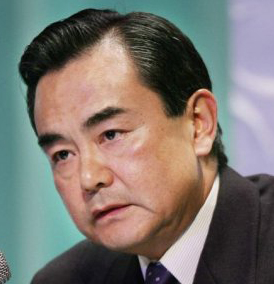The Obama administration’s global strategy largely comprises four elements:, system change, burden-sharing, focus adjustment and American leadership.
System Change: Accommodating Emerging Powers
The current international system has undergone a major transformation with the remarkable changes in the international power structure. Most importantly, the overall economic power has shifted toward the emerging market countries. While the Western developed countries still retain the core position in the international power structure, the current rise of the non-Western countries have closed the gap on the Western ones. In May 2010, the Obama administration released its first national security strategy report, which pointed out that the most important feature of today’s international politics was the diffusion of power.
The current framework lacks fluidity to correspond to the changes in the pattern of international power. Against the backdrop, the Obama administration acknowledged the growing presence of those emerging powers and took lead demanding more rights in the international system; the current international system does not completely reflect the changes in the pattern of international power. Against the backdrop, the Obama administration acknowledged the growing presence of those emerging powers and took lead on reforming the existing international mechanisms by transferring rights to the emerging powers to meet the requirements. The most typical example is to take G20 instead of G8 as the major economic forum. Obviously, the Obama administration is aware that the U.S. global interests would not be guaranteed if it does not take the necessary steps to overhaul the current international system and incorporate the emerging powers. Many elites in the United States also believe that as long as the current international system maintains a degree of openness, inclusiveness and flexibility, the system will endure various challenges and the U.S. interests be reasonably safeguarded. Therefore, for the United States, reforming the current international system is not only a choice to conquer difficulties, but also a necessary measure to safeguard its interests.
Burden-Sharing: Reviving U.S. Vitality
Certainly, there are prerequisites to reform the current international system and give the emerging powers more rights. In the 2010 National Security Strategy report, President Obama made it clear that “new and emerging powers who seek greater voice and representation will need to accept greater responsibility for meeting global challenges.” Therefore, the purpose of the Obama administration is to achieve the objective of burden-sharing, the principle it implemented in multiple occasions. For example, the United States has taken the strategy of “leading from behind” in Libya war. The burden-sharing strategy has two aims: one is to maintain the current international system and reduce the cost, and the other is to save more resources for domestic economic development and restore the vitality and strength of the United States.
Focus Adjustment: Turning to the Core Areas
The Obama administration has made major adjustments in the global layout of the U.S. strategic forces with the three main purposes. First is to reduce the investments in Europe. According to Sustaining US Global Leadership: Priorities for 21st Century Defense released by the U.S. Department of Defense on January 5, 2012, “most European countries are now producers of security rather than consumers of it”. The change in European attitude towards the issue of security provides an opportunity for the U.S. to be less involved in Europe and rebalance its strategic focus. Of course, this does not mean that the United States ignores the strategic importance of Europe. The second purpose is to stabilize the Middle East. The Middle East traditionally has been a critical region for the U.S. interests. Given its strategic importance and the nettlesome geopolitics, further complicated by the recent “Arab Spring,” the U.S. strategy in the region always has been challenged. The Obama administration anticipates that the revamped strategy would help the US keep its hold on the Middle East. The last one is to strengthen the Asia-Pacific region. The adjusted strategic focuses are comprehensive and rebalancing not only in the political and diplomatic aspects but also in the economic and the military aspects.
U.S. Leadership: The Ultimate Strategic Goal
The tradition of pursuing leadership in the U.S. political culture has had a profound impact on the U.S. foreign policies; the U.S. is not ready to bequeath its global hegemony to any other power. While it had some ups and downs, the Obama administration is confident that the U.S. is still the world’s largest, most dynamic, promising and powerful state and believes the nation is bound to be the world leader. In a speech made at the UN General Assembly on September 24, 2013, President Obama said that the United States is “exceptional” and its retirement from the world stage would create “a vacuum of leadership that no other nation is ready to fill.” Clearly, “American leadership” is indeed the motivation for the Obama administration to continuously work on its global strategy.
Chen Jimin, Ph.D., is an Assistant Research Fellow for the Institute for International and Strategic Studies at the Party School of Central Committee of C.P.C.



